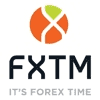European free-trade deals have finally awoken from their slumber, and Brussels is inking new agreements in challenge to Washington’s protectionist stance, writes FXTM Staff Writer, Samantha Robb.
A Euro-Japanese free-trade deal that has been in the works for the last four years and has already gone through 18 rounds of negotiations finally received the stamp of approval on Thursday 6 July. Following the Euro-Canadian deal, the official agreement between the EU and Japan was announced on the eve of the G20 summit, and is expected to boost European exports to Japan by a very attractive €20billion a year.
The highly-anticipated ‘Cars for Cheese’ deal found a middle ground on previously touchy areas regarding food and car exports. It plans to remove 99% of trade tariffs on traded goods and promises to shake things up for two economies that together account for 19% of the global GDP and just shy of 40% of exported goods.
It seems to be a win-win for both sides. Europe went into the deal looking for a decrease on Japanese tariffs on exported meat, wine and dairy products, while Japan hoped the agreement would increase access for its car industry, abolishing custom duties with the world’s largest importer of road vehicles. Both seem to have achieved those goals.
The new deal has already had a positive effect on the Euro, giving it the push it needed to shrug-off previous bearish sentiment and gain over Sterling. Investor attraction was given a positive boost thanks to increased access to the third largest economy on the planet, as well as the rocketing demand for Japan’s agricultural products.
Across the Pacific, however, things are not looking as cheerful. A free-trade deal between Japan and Europe could tie the hands of US manufacturers and exporters. A nice boon for Prime Minister Shino Abe, who will be hoping the new deal encourages Washington to rethink the Trans-Pacific Partnership, which President Trump officially withdrew from in January.
‘Cars for Cheese’ is not expected to take effect until 2019, which is around the same time the UK will be waving farewell to the EU. Speculation suggests the currency markets might be willing to look at Brexit in a more positive light now given Japan’s growing access to the EU market. If a free-trade deal can be reached for Japan, then there is definitely some hope for the U.K securing one, too.
At the moment, British goods are produced and exported in line with EU regulations. They aren’t bound by the same non-tariff restrictions that Japan and Canada may be subjected to, and it seems unlikely that product standards will be an impediment to EU-UK trade deals in the future. A free-trade arrangement for a post-Brexit Britain could put a positive shine on Sterling.
There’s still a long wait until the EU-Japan deal comes into play and it’s uncertain what, if any, influences the deal might have on the markets. Forex trading experts and analysts will be watching to see if the new accord stirs up any trouble with Washington, how it could affect ongoing Brexit negotiations, what new G20 deals it can inspire, before they comment on which way the currency markets may move.
Disclaimer: The content in this article comprises personal opinions and ideas and should not be construed as containing personal and/or other investment advice and/or an offer of and/or solicitation for any transactions in financial instruments and/or a guarantee and/or prediction of future performance. FXTM, its affiliates, agents, directors, officers or employees do not guarantee the accuracy, validity, timeliness or completeness of any information or data made available and assume no liability as to any loss arising from any investment based on the same.
Risk Warning: There is a high level of risk involved with trading leveraged products such as forex and CFDs. You should not risk more than you can afford to lose, it is possible that you may lose more than your initial investment. You should not trade unless you fully understand the true extent of your exposure to the risk of loss. When trading, you must always take into consideration your level of experience. If the risks involved seem unclear to you, please seek independent financial advice.

